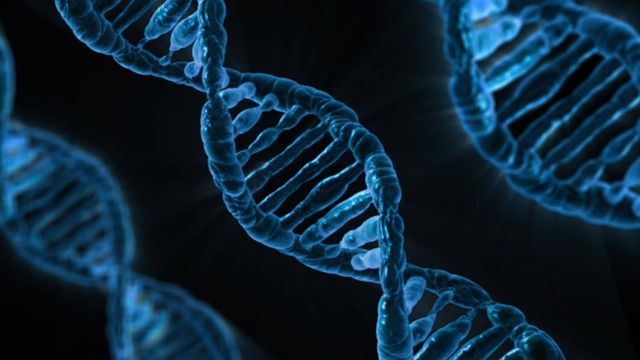DNA: meet XNA!
Interview with
Life as we know it uses DNA. But does it have to? Vitor Pinheiro is a biologist at  University College London where he makes molecules that can copy themselves, just like DNA, called XNA, as he explained to Georgia Mills...
University College London where he makes molecules that can copy themselves, just like DNA, called XNA, as he explained to Georgia Mills...
Vitor - You heard before DNA being described as a sort of beads on a string and you heard the base that make up DNA. Effectively, if you take a bead and actually break it into three different parts. So the base itself are sugars or ribos in the phosphate. In principle, if you change any one of those you can affect the function of the molecule. You can affect how it behaves chemically and biologically. If you change any of those you have a synthetic nucleic acid, which can store information, and we call those xenobiotic nucleic acids or XNA.
Georgia - Okay. So XNA. So what you've done is you've changed one small ingredient in the DNA chain and this has made this XNA?
Vitor - Yeah. Because if you change that one particular feature into every bead, into every sort of rung of the ladder, you actually end up with something that's very different but can still store genetic information.
Georgia - Okay. So my next question is: why do we need another thing - isn't DNA enough?
Vitor - It has been so far. But you can argue from a theoretical perspective - Matthew mentioned earlier on you have n = 1 biology. So we don't know whether anything else is possible. So, of course, if you can generate a new genetic material and prove that life can be sustained by it, you actually answer a very interesting question, that life doesn't have to be DNA.
There are also more practical applications, both in medical applications and materials.
Georgia - Okay. So what kinds of things can you do with this XNA?
Vitor - So XNA, you could use it as a material or even as a therapeutic agent. Those are the key applications for it.
Georgia - Why would it be useful as a therapeutic agent?
Vitor - Biology has evolved to essentially exclude biology, so defend itself against other life forms. So it very quickly identifies and destroys any invasive RNA, any invading DNA. But of course XNA, depending on the modification can sidestep that. It can be sort of not seen by biology.
Georgia - I see. So it could be a way of smuggling biological drugs into someone's body without their immune system noticing?
Vitor - Yes.
Georgia - What kind of therapies are we talking about here?
Vitor - For instance, there's Duchenne muscular dystrophy. The disease is caused by exon skipping so the natural processes in the cell don't recognise the right elements. So even though you're starting from, potentially, nearly correct DNA molecule, you end up with a protein that doesn't work well.
Georgia - Okay, so those cells not reading the DNA correctly?
Vitor - Yeah. And here's where if you have a molecule, and this is work done by Mike Gate here at the MRC laboratory of Molecular Biology in Cambridge. With some XNA chemistry you can target the DNA and force the cell machinery to skip to something a lot less troublesome, a lot less closer to the disease state. And, in effect, that then gives you a therapy value.
Georgia - And when you say you've created a new kind of DNA, a new thing altogether, can you create life like this?
Vitor - In principle, yes. Of course, the very first proof of principle was to show that with a different nucleic acid you could store information and you could then recover that information. From that proof of principle, it makes it feasible then to evolve every other component you need to make that information compatible with current biology. And, to some extent, my group is currently doing that.
Georgia - So you could you create a whole new lease of life with these XNA forming its basis?
Vitor - Yeah. Again, in principle yes. Because from the moment you have a single gene that is made of XNA, technically you can make every other gene you need in XNA and eventually sustain life itself.
Georgia - We've been talking a lot in the show about whether DNA is the blueprint for life everywhere. Does your work suggest it's not - what do you think about that?
Vitor - It would be a question of whether biology is based only on what's natural or what's feasible. Matt mentioned earlier on that as long as the chemistry allows it you can do it. It's the same thing - biology doesn't invent things very often but when it does invent it optimises it very well. So in a different scenario where you have different precursors available, you could actually have a different chemistry, so you could have life based on a different molecule. Given different precursors, I don't see why something different couldn't have emerged. We had the story about the L- and D- DNAs. Yeah that would be possible.










Comments
Add a comment